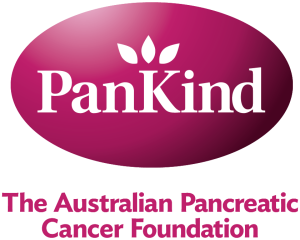Learn About Pancreatic Cancer

What is pancreatic cancer?
Pancreatic cancer begins when cells in the pancreas become abnormal and grow out of control to form a malignant tumour. A malignant tumour, or cancer has the ability to spread to other parts of the body through the bloodstream or lymphatic system.
What is the pancreas?
The pancreas is a gland that sits deep within the abdomen between the stomach and spine. It is about 15cm long and is shaped a little like a leaf. It has two main functions - to produce enzymes for digestion and hormones that control blood-sugar levels. The pancreas is described as having three parts, the head, body and tail.
Types of pancreatic cancer
The two main types of pancreatic cancer are either exocrine or neuroendocrine tumours, based on the cells they start in. Exocrine cells produce enzymes to aid in food digestion and neuroendocrine cells produce hormones such as insulin and glucagon which help regulate blood sugar levels.
More than 95% of pancreatic tumours are exocrine tumours. The most common type of pancreatic cancer is adenocarcinoma, which begins in the lining of the pancreatic duct. About 9 out of 10 people diagnosed with pancreatic cancer have a pancreatic ductal adenocarcinoma or ‘PDAC’.
Around 5% are pancreatic neuroendocrine tumours (PNETs, NETs or islet cell tumours) and are often slower growing than exocrine tumours. It is important to know the type of tumour as each type acts differently and are managed differently, responding to different treatments.
A comprehensive information booklet for people with pancreatic cancer and their loved ones.
The Living with pancreatic cancer booklet has been written in collaboration with medical professionals, people who have pancreatic cancer, and those caring for them. We are incredibly grateful to the patients and carers who took the time to share their personal experiences with us.
The booklet provides detailed information about:
- Pancreatic cancer and symptoms
- How pancreatic cancer is diagnosed
- Treatment options and decisions
- Managing symptoms and side effects
- Living well with pancreatic cancer
- Some quotes and advice from people living with or caring for loved ones with pancreatic cancer
- Looking ahead
- Practical and financial information
Download or order a booklet here.
Contact PanKind’s Support Navigator for more information and support on (02) 7207 6970 or email support@pankind.org.au.
Always consult your doctor or health professional about any health-related matters. PanKind does not provide medical or personal advice and is intended for general informational purposes only. Read our full Terms of Use.
Thank you to the clinicians, researchers, patients, and carers who have helped us create and review our website information and support resources, we could not have done it without you.








